
Director of Photography
In an isolated village of the Alentejo region, a conflict arises. José Vitorino, one of the landowners of the region, rich in prehistoric monuments, wants to build a luxurious solarium in lands filled with ancient rocks, places of devotion and sacred rituals. Indifferent to the people’s protest, who believe in the magical powers of the stones and that the region’s drought is due to the rocks’ destruction, José Vitorino hires an architect to plan his new house. On christmas eve, in the middle of the winter solstice, a strange ceremony around a dolmen, once an altar for bloody sacrifices in more remote times, releases a harmful spell. A race against time to reverse the faulty charm begins.

Director of Photography
A long-hidden, personal doc about leaving a beloved house by the late, revered Portuguese director Manoel de Oliveira.
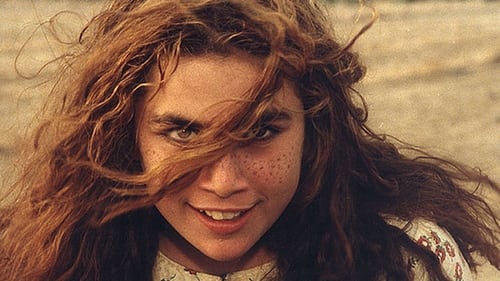
Director of Photography
Three boys grow up in war torn Syria.
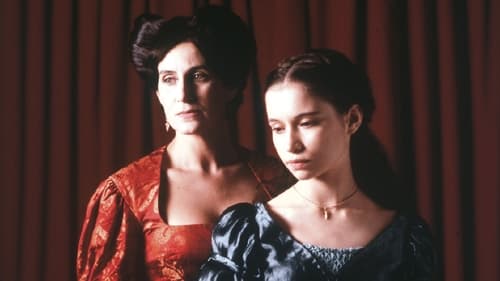
Cinematography
A historical classic drama in three acts, retold after an original prologue about dreams and nightmares of the thirteen-year-old noble heroine, Maria de Noronha.

Director of Photography
A historical classic drama in three acts, retold after an original prologue about dreams and nightmares of the thirteen-year-old noble heroine, Maria de Noronha.

Director of Photography
Set in the Lisbon during the festivities of Saint Anthony, the patron saint of lovers and the old town. The story is about Cato, a nationalist politician who is charismatic and unscrupulous. He obsessively pursues Silvia, a mystical and mysterious young transvestite whom he meets at the festival. When Silvia runs into Vicente, a policeman who arrests transvestites and threatens them, Silvia must look towards blackmail to save herself. Compromising photos of Cato start to emerge among opposition parties and he must do all in his power to save his political career.

Director of Photography
Set during the Estado Novo dictatorship, in the night of April 24, Pedro hears that the political police, PIDE, assaulted his house. Fearing of what his fate may be, Pedro runs, looking for a place to hide.

Cinematography
Carolina, an aging local grande dame who works at a crossing point on the titular river, marries another late-in-life character, the dredging-boat operator Antonio. Not long after their union, she becomes intensely jealous of Antonio's fondness for their winsome goddaughter, Joana, and insinuates herself into a relationship brewing between Joana and a mystical gypsy gold salesman. Soon, tempers are flaring, mystical secrets are being revealed and death is hovering over the central characters.

Director of Photography
In an empty theatre, a woman is watching an American film - "Ma's Sin" - which tells the weird revenge story of a middle-aged wife, driven mad by jealousy and a deep feer of dying. During the screening, the viewer's fantasies embodied in male characters harass her. Thus she will live the double adventure of the projected motion picture and of her own mental film. But as the lights turn on, she leaves the theatre, apparently unaffected.

Cinematography
Paulo Rocha catches up with his “beloved subject” in Porto, where he made Douro, Faina Fluvial in 1929, and where today Oliveira reminisces about the figure of his father, his first experience of cinema as an actor, his past as a racing driver, his first technical experiences…
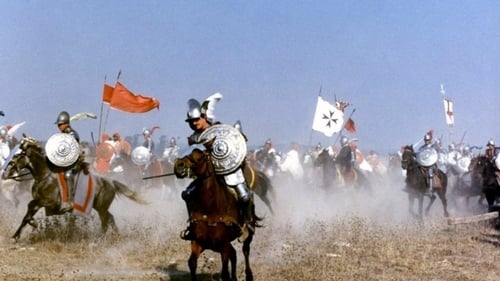
Director of Photography
Episodes from entire military history of Portugal are told through flashbacks as a professorish soldier recounts them while marching through a Portuguese African colony in 1973.

Cinematography
The French painter Edouard Manet painted four canvases depicting the execution in 1867 of Emperor Maximilian of Mexico. This short dramatic film evokes the artist's studio and the events of Maximilian's death, using a single, uninterrupted shot to present the artistic thought process through the eyes of the painter. The narration, written by the film's director, takes the form of an imagined interior monologue, presented in voice-over style in French and German with English subtitles. It alludes to the narrative, historical and visual texts that Manet drew upon to form his four versions of the painting.

Director of Photography
A young actress becomes politically aware within the Paris Commune of 1871.

Director of Photography
Nino, tough but sickly, and his older brother Vicente live in the country with their father. After their father disappears ― we’re never sure why ― murder is suggested. Vicente brings his girlfriend to the house, and a different kind of family is established as the three youngsters grow fiercely protective of each other. But their uncle grows suspicious about the fate of the missing father and forcibly kidnaps Nino, taking him away to the city and leaving Vicente to locate him there.

Cinematography
Are the Portuguese afraid of the changes after the Estado Novo dictatorship?

Director of Photography
A film adaptation of the Charles Dickens novel "Hard Times" set in a Portuguese industrial town of the 1980s.

Director of Photography
Luís Medeiros, Azorean painter, meets two odd characters in an exhibit in Lisbon: Inês, a charming woman, and Ed, a sneaky man. The two reveal to have with them a precious document that might be threatening to Luís. He brings them back home but his serenity is over due to an unexpected chain of events.

Director of Photography
During the century of the Spanish Gold, Doña Prouhèze, wife of a nobleman, deeply loves Don Rodrigo, who is forced to leave Spain and go to America. Meanwhile Prouhèze is sent to Africa to rule the city of Mogador. Ten years later Rodrigo leaves America and travels to Africa in search of Prouhèze to find out that she died and eventually meeting her daughter.

Director of Photography
José Pereira, a young medical graduate, meets a young and ardent Maria Eugénia. The time is the eve of the Portuguese Revolution, on 24th April 1974 and only a short time elapses between courtship and marriage. The young pair are very much in love, but José begins to have doubts about the "honesty" of such intense feelings of love, feelings which are too intense (or hot) to him . If Maria Eugénia is like this with him, will she be the same with other men?In the meantime, the Revolution takes its course. José, who previously had been persecuted because of his opposition against the old regime, now feels "left behind" and frustrated.

Director of Photography
Irene is an agent for an insurance company. She is given the job of investigating the disappearance of an elderly librarian in a provincial town. During her investigations she meets a history teacher - Ricardo - who knew the librarian and is interested in local legends. Irene happens to hear about a very old medieval castle which, according to legend, has a secret entrance that opens mysteriously on Christmas night as the clock strikes twelve.
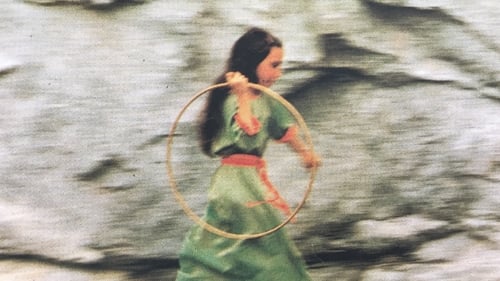
Director of Photography
Ana combines straight-on documentary technique with unexpected flights of dreamlike surrealism. The title character, played by Ana Maria Martins Guerra, is a young Portuguese girl who lives with her grandmother. Through their relationship, we are witness to the Cycle of Life: Grandmother takes care of granddaughter until granddaughter is obliged to do same for grandmother. The scenes between the two protagonists are counterpointed with impressionistic camera compositions based upon famous religious paintings. Ana was impressive enough to earn an American art-house release, a rarity for independently produced Portuguese films.

Director of Photography
This film depicts the life of the 19th-century Portuguese writer Wenceslau De Moraes by means of nine ancient ballads from China. The writer married a Chinese woman after he left his wife and family to go live in Macao. Later, he moved to Japan where he fell in love with a Japanese woman, staying in Japan for the rest of his life. Mixed in with the career and loves of Moraes is the history of Portugal at home and in its colonies.

Cinematography
Hipólito is a self-made man, who went up in life in devious ways, and used for profit the social turmoil when Portugal changed from a monarchy into a republic, and then to a military regime. Finally, he is forced into exile. Back in 1935 to family, friends, and lovers, he is in a mix-mesh of lies, and scheming, again.
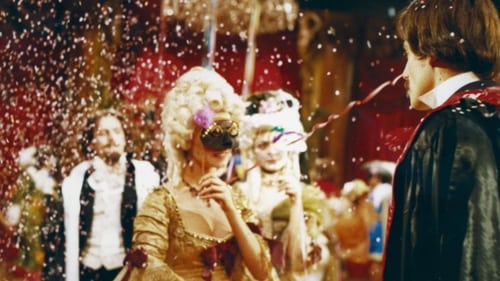
Director of Photography
The life of a young man, son of an English officer who lets himself become a prisoner of love resulting in fatalism and disgrace.

Director of Photography
Estefânia is an old, rich, strict catholic woman, and when she sets her eyes on a couple of servants who have no means to bring up properly their youngest son, António, she decides to move her influences in order to make a priest out of him. The parents accept it, the local priest and even the Seminar's rector accept it, and António accepts it - if not for piety, for obeyance to his parents. Once time goes by, and António is out of rural misery and into the prison-like system of a seminar, doubts and anguishes mount within him.

Cinematography
A paralyzed man travels across the city of Porto, finding characters and scenes from popular tales along the way.

Director of Photography
In the time of King Leonardo, a war and the plague that accompanied it depopulated Traslândia. Ignoring these tragic events, Queen Isménia, Princess Camila and lady-in-waiting Narcisa, coming from a distant kingdom, arrive in Traslândia, when the war approaches the end.

Cinematography
An engineer falls in love with a girl from a village. A battle between progress and tradition.

Director of Photography
Maria, a blind girl apparently raped by her stepfather, is held in an isolated and dilapidated hospice, desperately awaiting a miracle by Our Lady of Fátima. Turned over by Angela, her aunt, into the care of Dr. Firmino, an imposing doctor, she will suffer moments of despair, grace, and fear, among beliefs, phantoms, and revelations.

Director of Photography
A woman arrives home, apparently coming from her job, and sets out about house chores and placing every object around her with extreme care. The only company she has is the radio, tuned to a station of popular music hits that the audience can ask for by telephone. There is a single hint that she may have breast cancer. Then, she sets the table for a large dinner - for one - including a champagne bottle. She commits suicide by pills overdose, before she utters a word.

Director of Photography
In an imaginary future, Portugal consists of an association of states - North and South - with zones of specific influence. City under vigilance, Lisbon is inhabited by a repressed and militarized population. Maria and António stand out in this city and surrender themselves to a submersive love. 1978

Director of Photography
This is a documentary about a way of living in Madeira island in Portugal, after the revolution, after April's 25 in 1974. A unique document for the country and especially for the Madeira island remembering those times of hard living.

Cinematography
During World War II, during a misty morning, near a fishermen's village, four children come across two RAF pilots ejected from a plane that crashed in the sea.

Director of Photography
O Outro Teatro proposes a look at the independent theater manifestations that came in the wake of the pioneering gestures of Teatro Experimental do Porto.

Director of Photography
Chronicle of resistance and hope - about Moncorvo, Trás-os-Montes: roots of the past, discourse of the future, the current reality.

Director of Photography
A documentary about a small touristic village in Algarve, Southern Portugal.

Director of Photography
In the gardens of a large village house belonging to a reclusive architect, a hand is found. In a sign placed at the gates of the property, the architect annouces he will return it to whoever proves to be the owner.

Director of Photography
The film documents two phases of an incident occurred in Portugal, during the 1974 revolution. In September 30, 1974, José Diogo, a tractor driver, kills his boss, Columbano Líbano Monteiro, after being dismissed from his job, when he claimed his right to work. He is imprisoned in Beja, Alentejo, and he is freed until prossecution. The courts are reluctant to judge him, because of the social unrest and the political aid Diogo is receiving from trade unions and political parties. A crowd will disrupt the court, in Tomar, and conduct a popular judgement in the hall of the tribunal, deciding to free Diogo, and condemning the boss, posthumously, for dismissing his employee and attacking him. The case became a law case study since then.
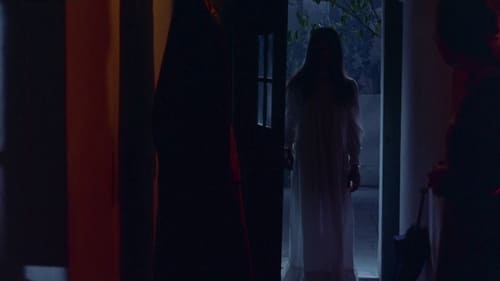
Director of Photography
A young girl, Benilde, so protected by her religious family that she seemingly knows nothing about procreation, insists that her mysterious pregnancy is a miracle; however, her distressed bourgeois family decides that Benilde has lost her mind.

Cinematography
Jorge Lopes is a journalist in a Lisbon daily newspaper. He does story after story in the Portuguese capital, covering all the aspects of its life, accompanied when necessary by Antonio, his photographer.
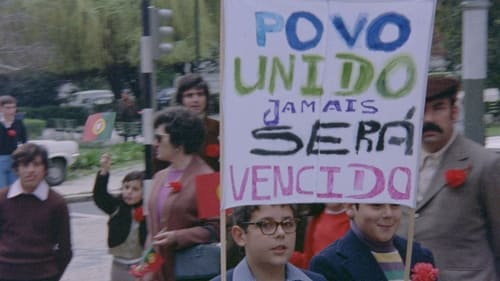
Director
Film directors with hand-held cameras went to the streets of Lisbon from April 25 to May 1, 1974, registering interviews and political events of the Portuguese "Carnations Revolution", as that period would be later known.

Director of Photography

Director of Photography
The gritty lives of Portuguese villagers are shown in this action drama which shows the interaction between a married couple who have taken an unusual vow of celibacy and a gang of gypsies who are terrorizing their village. The film highlights many ancient religious traditions still current in these regions, as the villagers, devout Catholics, support the gypsy con-men by buying religious relics from them.

Director of Photography
Pedro is a young agricultural worker who gets caught in the middle of a fight between two families, kills a man and escapes to the capital. He can't find work,resorts to begging, but keeps his mountaineer pride. He starts a new life with a prostitute who is nice to him, but nothing works. He returns home, and alone, and now he finds life there is sad as well.

Director of Photography
Black and white with color photography is used to tell the story of 12 would be demonstrators waiting for re-enforcements to show them the way. the group spends their time talking about love, religion, sex and the war. The meeting degenerates into a drunken orgy before the police mercifully break up the group and stops the film from continuing. The film was banned in Portugal. - Dan Pavlides, Rovi

Cinematography
The director and two writers and intellectuals interview the Artist in his atelier, and near some of his works, discussing its relations with his former poetic and philosophical works.

Cinematography
A short film from the 1960s, a production by Francisco de Castro, Albufeira is a film promoting tourism in the Algarve city (such as Lisbon, Jardim da Europa), showing, however, the authorial and experimental brand of António Macedo, a of the founders of the Portuguese Cinema Novo, always inclined to escape the canons of production.
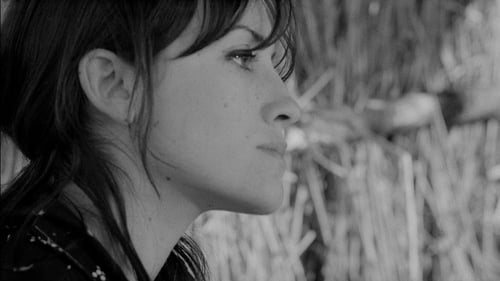
Director of Photography
After a stint in the army fighting in Angola, a soldier comes home to find his sweetheart has married his brother. He makes advances towards his sister-in-law, but she turns him down. Discouraged, the man meets a new girlfriend who vows to escape the town's crushing poverty even if she has to steal.

First Assistant Camera
An overview of the assemblage and production of motor vehicles in Portugal, including the local representatives of Mercedes, Morris, and Massey-Ferguson, and subsidiary industries for car parts. - IMDb

Director of Photography
Reflections on life and death through the eyes of a Medical Doctor, researcher on blood diseases, under the anguish of consulting a terminally ill young woman.

Camera Operator
A French sailor circa 1850, disembarks in a desert Atlantic island, and discovers a woman who had survived for many years her father and brother, dead while searching for mysterious valuables. The young couple discover paradise, and its end.













































